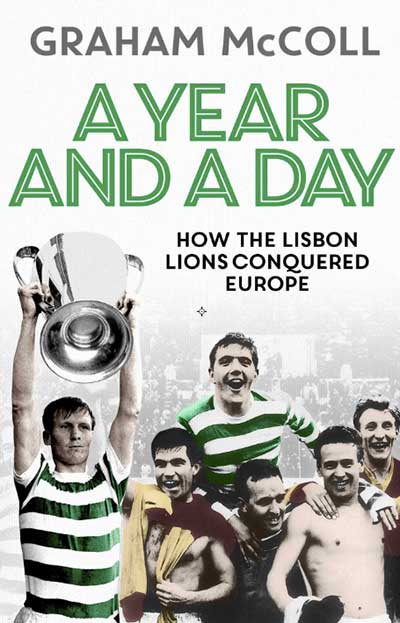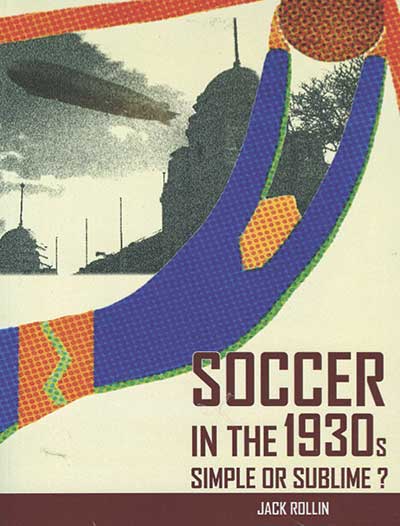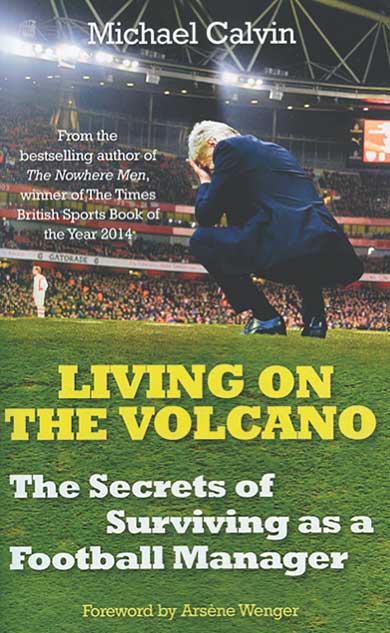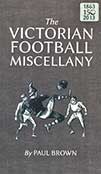
Simon & Schuster, £20
Reviewed by Jonathan O’Brien
From WSC 367, September 2017
Buy the book

Simon & Schuster, £20
Reviewed by Jonathan O’Brien
From WSC 367, September 2017
Buy the book
1 July ~ “His Euro is over, that’s fate for you,” Marc Wilmots told the press on Thursday night, reporting on Jan Vertonghen’s injury. Belgian media had speculated all afternoon about Vertonghen’s ankle, badly sprained in training earlier in the day, causing ligament damage.
 Simple or sublime?
Simple or sublime?
by Jack Rollin
Soccerdata, £18
Reviewed by Roger Titford
From WSC 351 May 2016
What a curious book this is. At first I thought it was a reprint but it is a new offering from Jack Rollin (of Rothmans Football Yearbook fame) and published by Soccerdata, the imprint of another revered statto, Tony Brown. It may have taken as its model and inspiration Geoffrey Green’s classic Soccer In The Fifties but it reads rather less fluently. Imagine a decade’s worth of the Rothmans Yearbook condensed and set to workaday prose. It’s hours of fact, the whole gamut of the game – internationals, England, Scotland, Amateurs, the Army Cup and the Varsity match – comprehensively covered. If you are about 95 years old you may well get some of those “Ah, I remember that” moments.
 The secrets of surviving as a football manager
The secrets of surviving as a football manager
by Michael Calvin
Century Books, £16.99
Reviewed by Huw Richards
From WSC 344 October 2015
Football uses managers as defining figures much as old-style history employed monarchs, to the extent of describing often pathetically short periods in office as “reigns”. Michael Calvin’s labelling of this phenomenon “Gaffer as Godhead” typifies an eye for the neat, aphoristic turn of phrase. He sees Roberto Martínez as “an undercover pragmatist” and identifies Ian Holloway as a “man of contradiction and impulse”. Such one-liners stud a book built on long interviews with its subjects, among which Holloway’s stream of consciousness stands out along with a sympathetic account of Alan Irvine’s travails and an intriguing portrait of Paul Tisdale.
Anyone wanting the long view of football management still needs to read Neil Carter’s historical study (The Football Manager, published in 2006). But as a picture of how it is now, this will be hard to beat. Those seeking the “how to” guide implied in the subtitle will find plenty of ideas, but must look hard since they are located within the wealth of insight and anecdote throughout the interviews rather than any grand overarching exposition. “Survival” implies retaining health, sanity and self-respect, rather than avoiding the all-but inevitable sack, although on either count your chances are better at Swansea, Exeter or Everton than QPR or Leeds.
This is a job which demands unshakeable self-confidence, but at the same time is designed to erode and ultimately destroy it. The toll it can take is shown at its most extreme by Martin Ling’s description of depression and electro-convulsive therapy, but there is plenty of testimony elsewhere, such as Brian McDermott’s belief that: “There are a lot of depressed people in football, but they probably do not even know it, because they are conditioned by the game.”
Calvin’s questioning evokes a sense of men who are confident and reflective, with credentials and hinterlands beyond their coaching badges. Some, such as Brendan Rodgers, are adepts in neuro-linguistic programming (no, me neither before I read this book), while Chris Hughton did a corporate management course and many have benefited from the League Managers Association’s training.
Aidy Boothroyd may still periodically punch a wall at half time, but sensitivity has replaced rage as a default setting. It is not just innate decency that explains Eddie Howe’s practice of “being a shoulder” for players, but that it “can only help you”.
They are also supportive of each other. Rodgers and Alan Pardew in particular emerge as willing to assist others, while Pardew also generates the best piece of trivia with his pride, from his past as a glazier, at having installed windows on the Natwest Tower and Sea Containers House.
Calvin is no soft touch, but the overwhelming impression he conveys is a sympathetic one – of largely decent, if driven men working in a world where, as Mick McCarthy says, “common sense is not very common”. The problem is not the managers, but the people who appoint them and the hysterical atmosphere in which they must try to function.
 by Paul Brown
by Paul Brown
Goal-Post, £7.99
Reviewed by Terry Staunton
From WSC 318 August 2013
Pre-empting the terrace chants of several future generations, the 1878 FA Cup final referee was, indeed, a Bastard. Racehorse owner and solicitor Segar Bastard was the man with the whistle, although just a few years earlier he might have been waving a handkerchief to signal foul play, before a bright spark hit on the idea that something which made a noise might more easily attract players’ attention.
It sounds like an obvious tweaking of how the game should be played, along with the 1871 ruling that introduced dedicated goalkeepers – instead of anyone on the pitch being allowed to take a “fair catch” – although it would be another 40 years before keepers’ powers were reined in to prevent them from picking the ball up anywhere in their own half. Likewise, the Victorian equivalent of goal-line technology was the 1870s introduction of solid crossbars, thus ending the confusion and controversy caused by balls striking the strip of tape tied between the tops of posts.
Paul Brown’s miscellany doesn’t attempt a straight chronology of how the game developed while Queen Victoria was on the throne, and that is to the book’s advantage. The time-hopping scattergun collection of pivotal changes to the laws governing play is liberally peppered with tremendously trivial tales of Zulu warriors playing exhibition matches in Scarborough, newspaper reports of therapeutic games played between inmates of lunatic asylums and revelations about the health-conscious 1889 Sunderland team containing seven non-smokers.
The author’s visits to press archives come up trumps time and again, recounting St Patrick’s Day riots at an 1840 match in Edinburgh (“a reinforcement of the police soon dispersed the cowardly assailants; four of the ringleaders, we are happy to say, are in custody”) or Derby Council’s decision to ban the game outright in 1846, declaring it “a vestige of a semi-barbarous age”. And who wouldn’t have wanted to witness the game played in Windsor, when both teams had their ankles tied 15 inches apart and the winners were presented with a cheese?
Among these myriad curios, Brown offers potted biographies of pioneering teams, players and personalities. Modern-day fans of Notts County may already be well versed in the club’s history but it’s intriguing for the rest of us to learn that antagonisms with their Forest neighbours stretch back to the very first derby fixture, when the latter team sneakily fielded 17 players. Rightful space is afforded to such movers and shakers as first FA secretary Ebenezer Cobb Morley, aristocratic Arthur Kinnaird (a 19th-century David Beckham, suggests Brown) and poet Nevill “Nuts” Cobbold, regarded as the forefather of dribbling.
The rules may have varied from town to town, even factory to factory, before the FA sought workable unification, while outbreaks of violence meant football habitually filled as many column inches of the crime reports as it did the sports pages, but the colourful transitions the game went through to become the beast we know today are endlessly fascinating. This book doesn’t set out to tell the story in dense, sober detail, opting instead to present itself as a hugely entertaining exercise in eavesdropping.